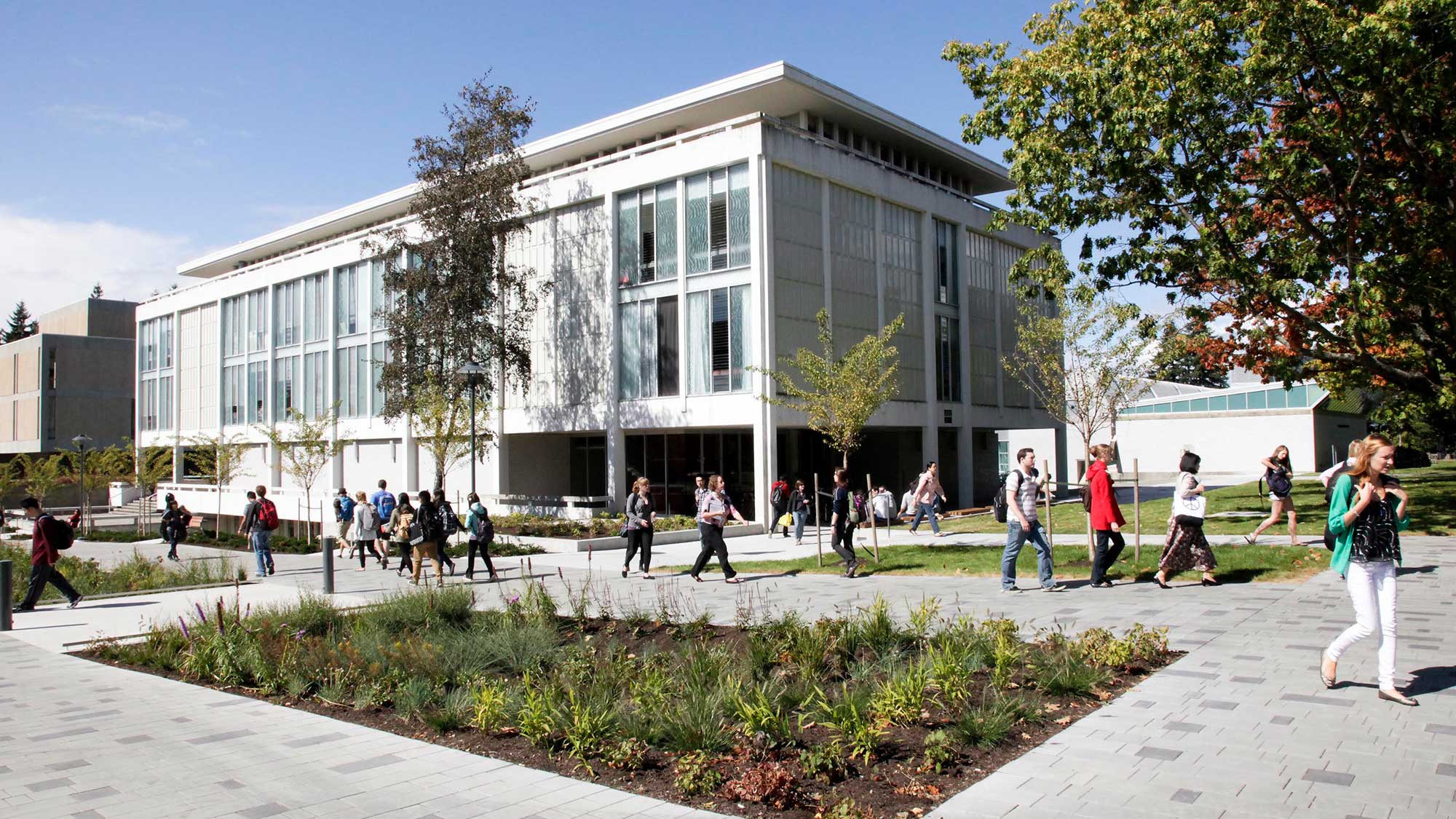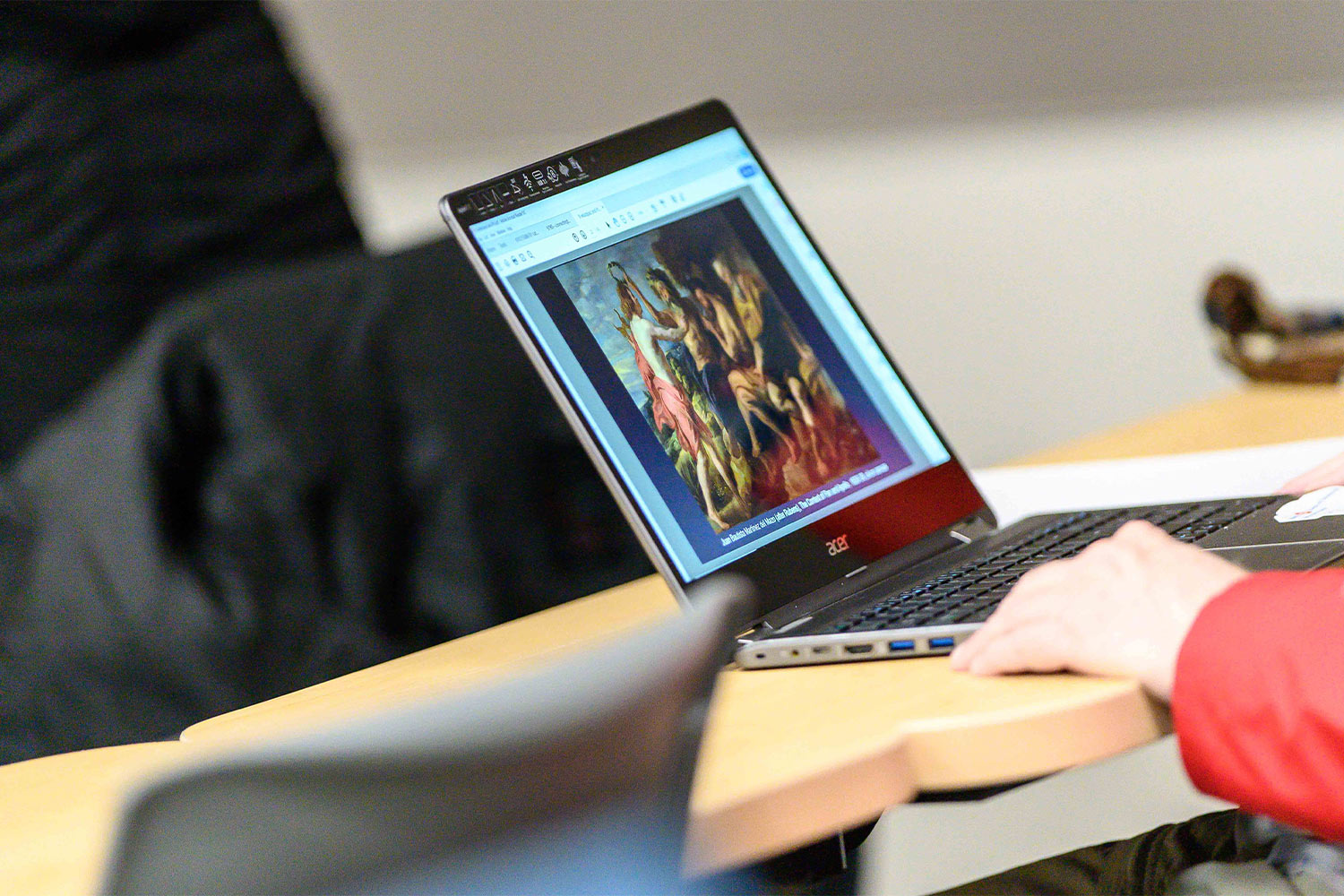The Department of Art History, Visual Art and Theory (AHVA) at the University of British Columbia is an active research and teaching centre. We offer undergraduate and graduate programs that lead to BA, BFA, MA, MFA, and PhD degrees, and a post-baccalaureate diploma.
At AHVA, our primary goal is to foster critical and reflexive thinking within an inclusive and supportive environment. We strive to be innovative in our pedagogy and to be international in our scholarly perspective.
Our department’s faculty is actively involved in research, and many graduates have established distinguished careers in the creative, scholarly, and gallery fields.
AHVA comprises three streams of research-based learning and practice: art history (ARTH), critical and curatorial studies (CCST), and visual art (VISA).
Located on the traditional, ancestral, and unceded territory of the xʷməθkʷəy̓əm (Musqueam) people, we are a community of students, faculty members, practitioners, research and support staff, all working together to advance the study and practice of art history, visual art and theory.
Art history and visual art were first taught at the University of British Columbia in 1949 when noted Canadian painter B.C. Binning was appointed to the faculty of the newly formed School of Architecture. The then-named Department of Fine Arts was established in 1958 as an independent department within the Faculty of Arts.
Since its inception, the department has grown steadily, expanding into distinct but interconnected program streams concerned with studio-based practice, the history and theory of art, and curatorial studies and professional practice.
In 2001, the department changed its name to the Department of Art History, Visual Art and Theory to better encapsulate our faculty's innovative teaching and interdisciplinary research interests.
It is expected that all UBC students taking VISA courses will be respectful and responsible when researching, creating artistic work, and presenting work publicly.
VISA students are members of the UBC community. Students must ensure that their research and their work's content do not violate international, national, provincial, municipal, or university laws and policies.

